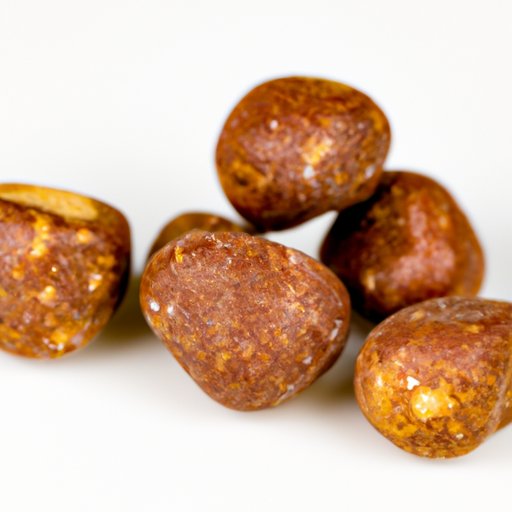
I. Introduction
Gallstones are a common health problem that can cause discomfort and pain in the upper abdomen, bloating, nausea, and vomiting, among other symptoms. They are small, solid formations that accumulate in the gallbladder due to the accumulation of various substances such as cholesterol or bile. In this article, we’ll explore different treatment options for gallstones, both medical and natural, to help you better manage your condition.
II. Medical Treatment
Medical treatment for gallstones typically involves medication or surgery. Medications can help break down the stones and reduce inflammation, while surgery (such as laparoscopic cholecystectomy) is used to remove the gallbladder altogether. Both options come with risks and benefits that need to be weighed carefully with your healthcare provider, taking into account your medical history, age, and overall health. Depending on your condition, your doctor may recommend one or the other or refer you to a specialist.
III. Natural Remedies
If you’re looking for natural ways to treat or prevent gallstones, several herbs and supplements may be of help. For example, milk thistle has been shown to have a beneficial effect on liver function, which can translate into better gallbladder health. Dandelion root, turmeric, and artichoke extract are other natural remedies that have been used to promote gallbladder function and reduce inflammation. It’s critical to talk to your healthcare provider before taking any herbs or supplements as some may interact with other medications or have adverse side effects.
IV. Diet Adjustments
A healthy diet and adequate hydration are essential for preventing and treating gallstones. A diet high in fiber, whole grains, fruits, vegetables, and lean protein can help promote good digestion and reduce inflammation in the body. On the other hand, a diet high in saturated fats, sugar, and processed foods can increase the risk of gallstones. Drinking enough water and avoiding dehydration is critical for maintaining good bile flow and eliminating substances that could lead to the formation of gallstones.
V. Exercise
Regular exercise, such as walking or jogging, can help reduce the risk of gallstones and promote overall digestive health. Physical activity helps stimulate the release of bile, which keeps it flowing smoothly through the digestive system. Strength training, yoga, and other activities can also help stretch and stimulate the abdominal muscles, which can promote better gallbladder function and reduce the risk of stone formation.
VI. Lifestyle Changes
Several lifestyle changes can help prevent and manage gallstones. If you smoke, quitting can help reduce inflammation in the body and promote better overall health. If you drink alcohol, limiting your intake to one drink per day for women and two drinks per day for men can also have a positive effect. Maintaining a healthy weight, getting enough sleep, managing stress, and staying up to date with preventive health screenings can also help reduce the risk of gallstones and improve your overall health and well-being.
VII. Alternative Treatments
Alternative treatments can help reduce gallstone symptoms and promote better digestive health. Acupuncture, massage therapy, and reflexology are a few examples of complementary therapies that can help stimulate the muscles and nerves in the abdomen, improve blood flow, and reduce inflammation. As with any treatment, it’s important to research the practitioner’s credentials and experience beforehand and talk to your healthcare provider before initiating any alternative therapy.
VIII. Home Remedies
At-home remedies can provide relief for symptoms associated with gallstones and promote overall digestive health. Drinking apple cider vinegar or lemon juice mixed with warm water throughout the day can help break down the stones and reduce inflammation. Applying heat (such as a warm compress) to the abdomen can also help relieve pain and discomfort. Although these remedies are generally safe, it’s essential to talk to your healthcare provider before starting any new treatment, particularly if the pain is severe or accompanied by other symptoms.
IX. Conclusion
Gallstones can be a painful and uncomfortable condition, but there are many options for treatment and prevention. Medical treatments, such as medication and surgery, can be effective, but natural remedies, diet adjustments, exercise, and lifestyle changes can also play a crucial role in managing the condition. It’s important to work with your healthcare provider to develop an individual treatment plan that takes into account your medical history, current symptoms, and preferences. With the right approach, you can successfully manage your gallstones and improve your overall health and well-being.





